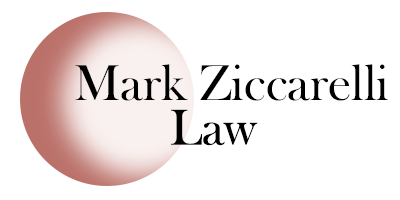Personal Injury Q&A with Attorney, Deneen LaMonica
Victims of motor vehicle accidents are thrown into the confusing world of personal injury claims. A world that can be difficult to navigate. With unique terminology that can be hard to grasp. Deneen LaMonica, attorney at the law firm, Ziccarelli and Martello, took time to answer some basic questions she has encountered in the many years she has been practicing personal injury law. Ms. LaMonica has been an attorney in Ohio and Illinois for 20 years and has extensive knowledge in the handling of personal injury claims. Consulting an attorney in regard to your personal injury claim is the best resource available to any victim of a motor vehicle accident.
- What is a statute of limitations?
- Under Ohio law, there is a time limit within which a civil claim must be resolved. If a case cannot be resolved, it must be filed into court within the statutory deadline. If the claim is not either resolved or filed into court within the statutory deadline, the claim is forever barred. The statute that governs the time limitations for various civil claims is Ohio Revised Code Section 2305, et seq…
- What is the statute of limitations in the state of Ohio relative to personal injury cases (motor vehicle accident or premises liability claims)?
- The Statute of Limitations for motor vehicle accidents and slip and fall claims is 2 years.
- What happens if I am unable to settle my claim within 2 years of the accident?
- The case must be filed into court or dropped.
- How much will it cost me to have an attorney represent me for my personal injury case? How much do I need to pay up-front to retain counsel?
- We do not charge any up-front fees to represent an injured party. Our representation is contingent on obtaining a settlement or verdict in your favor. The contingency amount depends on the type of injury claim. A typical contingency agreement is 1/3 of the recovery.
- What is an uninsured driver?
- An uninsured driver is a driver that has no insurance. Unfortunately, the State of Ohio does not ensure all drivers are insured and the penalty for driving without insurance is negligible. If you are hit by an uninsured driver you will have to make a direct claim against the individual driver. Typically, the uninsured driver does not have the money or the assets to pay you for your injuries and damages.
- What is an underinsured driver?
- An underinsured driver is a driver that does not carry enough insurance to cover you for your injuries and damages.
- Who do I file a claim against if I was hit by an uninsured/underinsured driver? Do I even have a case?
- Yes, you have a case. You will file a claim with your own insurance company. However, you will only be covered if you purchased Uninsured/Underinsured Motorist Coverage (UM/UIM).
- My agent told me I have full coverage. Does this include UM/UIM coverage?
- Not necessarily. We see this happen a lot. You need to check your declaration page and be sure that UM/UIM coverage is listed. If it is not, you do not have UM/UIM coverage and are putting yourself at risk if you are ever injured by an uninsured or underinsured driver. The cost to add UM/UIM coverage is not high and you should look into adding this coverage.
- Why would my health insurance pay for accident related treatment when the accident wasn’t my fault? Why doesn’t the person’s insurance that hit me pay for my accident related treatment?
- You have a contract with your health insurer to provide you with insurance benefits. A person typically seeks medical treatment immediately following an accident. Immediately following an accident, fault may not have been determined. In addition, liability coverage may not be known at this early stage.
- What is medical payment or medpay? How does it play a role in my personal injury case?
- Medical Payments Coverage (MPC) is auto insurance coverage you purchase through your own auto insurer. If purchased, it provides the injured party with protection up to the amount purchased. MPC protects you in the event you have out of pocket medical expenses related to an accident.
- What is subrogation? How does it impact my personal injury case?
- Subrogation is a term describing the right of an insurance carrier to recover insurance proceeds that it has paid out on behalf of its insured from a third-party tortfeasor. It acts in effect as a lien against a personal injury claim.
- What is a lien and what role does it play in my personal injury case?
- A lien is a claim against your personal injury case. The liens must be satisfied upon the conclusion of the case. Examples of liens include subrogation, outstanding medical bills, workers compensation benefits paid as a result of your accident, and outstanding child support.
- Do I still have a case if I have pre-existing conditions or injuries?
- Yes, if your injuries were aggravated or if the accident caused a re-injury.

